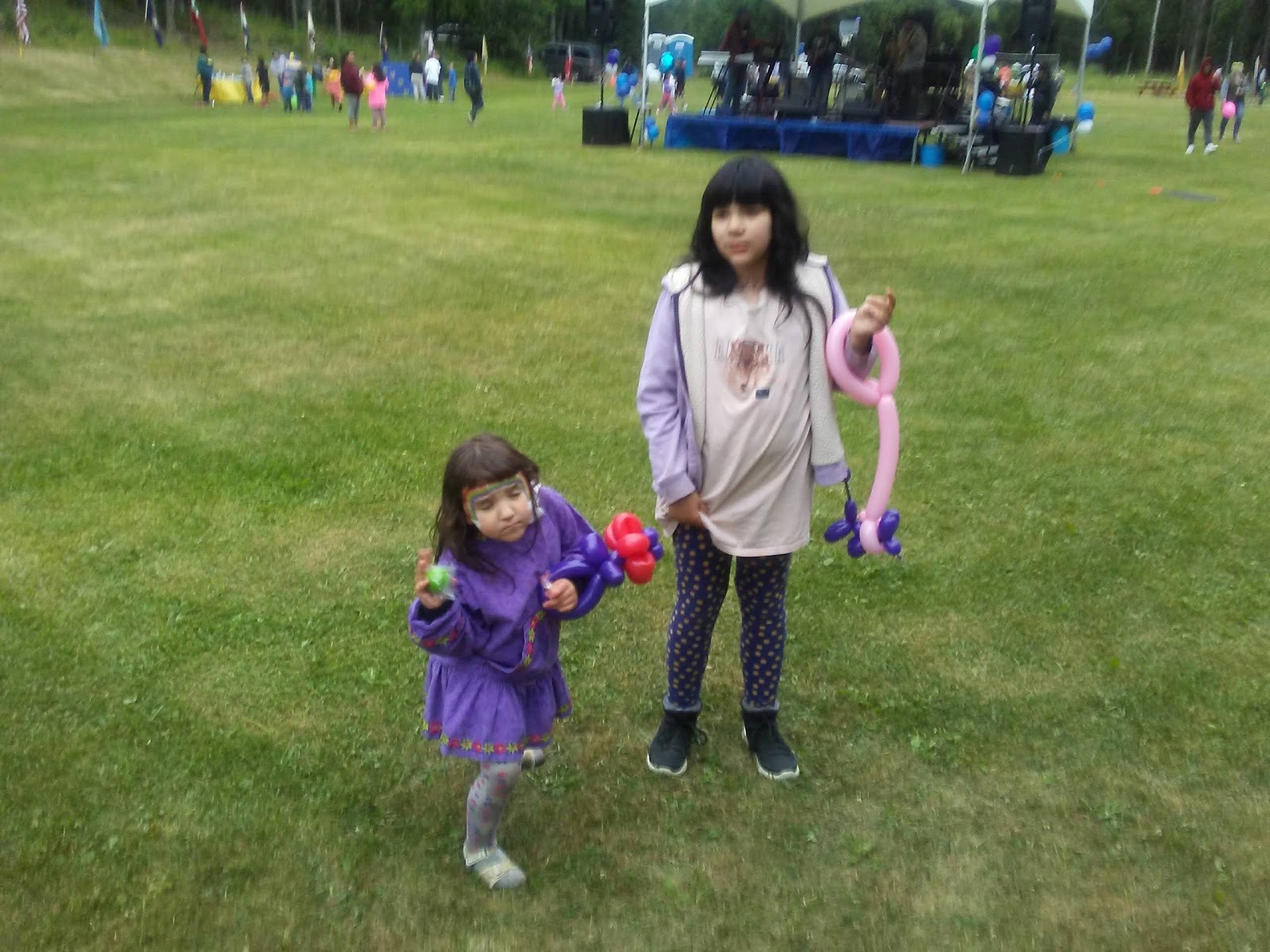Overview
AK Child and Family is a mental health treatment center for people seeking treatment near Anchorage County. As part of their treatment modalities for recovery, AK Child and Family provides individual psychotherapy, couples/family therapy, and cognitive behavioral therapy during treatment. AK Child and Family is located in Anchorage, Alaska, accepting cash or self-payment for treatment.
AK Child and Family at a Glance
Payment Options
- Cash or self-payment
- Medicaid
- State-financed health insurance plan other than Medicaid
- Private health insurance
- Federal military insurance (e.g., TRICARE)
Assessments
- Screening for tobacco use
- Comprehensive mental health assessment
- Comprehensive substance use assessment
- Screening for mental disorders
- Screening for substance use
Age Groups
- Children/adolescents
- Young adults
- Adults
- Seniors
Ancillary Services
- Intensive case management
- Case management service
- Diet and exercise counseling
- Education services
- Family psychoeducation
Accreditations
The Joint Commission:

The Joint Commission accreditation signifies that a facility has met rigorous standards of excellence in patient care, treatment, and safety. It assures individuals and healthcare professionals that the accredited facility provides high-quality, evidence-based care for addiction and mental health issues, fostering trust and confidence in their services.
Treatment At AK Child and Family

Conditions Treated
Mental health treatment:
Mental health facilities offer a safe space for individuals to get specialized care. Trained experts create personal plans using therapies, possibly including medication. The goal is to help individuals cope better and lead fulfilling lives, with constant support and a community feel.
Alcoholism:
Alcohol addiction is when a person becomes physically and mentally dependent on alcohol, leading to mood swings, impulsive actions, intense cravings, and withdrawal symptoms. Treatment includes supervised detox, therapy, and support groups. It's important to note that rehabilitation doesn't "cure" alcoholism, but it helps individuals better manage their addiction, regain their ability to function in daily life, and improve their overall well-being.
Substance use treatment:
Substance use rehabilitation represents a holistic treatment strategy tailored to aid individuals grappling with drug or alcohol addiction. This comprehensive rehabilitation method encompasses two key aspects: first, addressing the physical dependency, often commencing with detoxification, and second, tackling the psychological triggers through a range of therapeutic techniques. The ultimate aim is to empower individuals to attain and sustain sobriety while providing them with the necessary skills and coping mechanisms to successfully reintegrate into society and lead a life free from substance abuse.
Co-occurring Disorders:
Dual-diagnosis rehabilitation centers often offer the most suitable approach for addressing concurrent mental health and substance abuse issues. These facilities typically employ a team of medical and behavioral specialists who utilize a variety of interventions and create a conducive healing environment to support your journey toward lasting recovery. Their comprehensive treatment approach typically encompasses evidence-based therapies such as cognitive-behavioral therapy, recovery support meetings, 12-step facilitation, psychoeducation, skills training, and group therapy to help you achieve and maintain long-term wellness.

Levels Of Care
Hospital inpatient treatment:
Inpatient treatment comprises a thorough residential therapeutic program, during which patients reside on-site for a period generally lasting from 30 to 90 days. This immersive setting provides organized assistance, guaranteeing safety and a dedicated approach to recovery. The array of therapies available encompasses individual and group counseling, cognitive-behavioral therapy, holistic interventions, family therapy sessions, and experiential therapies. The primary goal is to address the physical, emotional, and psychological facets of addiction or mental health disorders, establishing a strong foundation for enduring healing.
Long-term residential:
Extended treatment plans frequently encompass residential initiatives where patients stay on-site throughout their therapy, tailored to their specific requirements. Professionals are available 24/7 at these facilities to provide continuous assistance. Treatment durations can vary, from 90-day rehabs to half-year stays, annual programs, or even up to two-year durations if necessary.

Treatment Modalities
Individual psychotherapy:
Individual Psychotherapy is a personalized therapeutic approach aimed at aiding individuals in overcoming addiction and its underlying psychological triggers. A licensed therapist works closely with the individual through one-on-one sessions to unearth and address personal challenges, emotional issues, and behavioral patterns contributing to their substance abuse. Individual psychotherapy lays a robust foundation for a sustainable recovery and a better quality of life by fostering self-awareness, coping strategies, and healthier behavioral responses.
Couples/family therapy:
Couples Therapy is a specialized form of counseling designed to help couples navigate and improve their relationships. In this therapeutic process, a trained therapist or counselor works with couples to address communication issues, conflicts, and emotional challenges within their partnership. Couples Therapy provides a safe and supportive environment for couples to explore their feelings, understand each other's perspectives, and develop effective strategies for building stronger, more fulfilling connections. It can be instrumental in fostering healthier relationships, enhancing intimacy, and promoting long-term relationship satisfaction.
Cognitive behavioral therapy:
Cognitive Behavioral Therapy (CBT) is a widely practiced form of psychotherapy that seeks to address dysfunctional emotions, behaviors, and thoughts through a goal-oriented, systematic process. It encourages individuals to challenge distorted cognitions and change destructive patterns of behavior by promoting self-awareness and effective coping strategies. CBT is often used to treat a range of disorders including anxiety, depression, and stress, making it a versatile and practical therapeutic approach. Through enhancing an individual's capacity to manage life's challenges, CBT contributes to improved mental well-being and overall quality of life.
Dialectical behavior therapy:
Dialectical Behavior Therapy (DBT) is a form of psychotherapy that blends cognitive-behavioral approaches with mindfulness strategies. It is particularly effective in treating addiction, as it addresses the underlying emotional pain and destructive behaviors that often accompany substance misuse. Through enhancing emotional regulation, distress tolerance, interpersonal effectiveness, and mindfulness, DBT equips individuals with the coping skills necessary to maintain sobriety and improve their overall quality of life.
Integrated Mental and Substance Use Disorder treatment:
Integrated Mental and Substance Use Disorder treatment is a comprehensive approach to treating individuals with both mental health and substance use disorders. It aims to address both conditions simultaneously through a coordinated and integrated approach. The goal is to improve overall well-being and reduce the risk of relapse.
Telemedicine/telehealth therapy:
Telehealth Therapy is a level of care that offers psychological counseling and therapeutic services to individuals via digital platforms, such as video conferencing, phone calls, or messaging apps. This approach allows clients to connect with qualified therapists remotely, providing increased accessibility, flexibility, and convenience, especially for those who may have mobility issues, live in remote areas, or prefer the comfort of their own environment. By leveraging technology, Telehealth Therapy bridges the gap between patients and mental health professionals, ensuring continuity of care irrespective of physical distances.
Substance use disorder counseling:
Substance use disorder counseling treatment modalities refer to various approaches and methods used in the counseling and treatment of individuals with substance use problems. This can include individual therapy, group therapy, cognitive behavioral therapy, motivational interviewing, family therapy, and 12-step programs. The goal is to help the individual overcome their substance use, develop healthy coping skills, and lead a fulfilling life in recovery.
Trauma-related counseling:
Trauma therapy addresses the underlying emotional and psychological wounds that may contribute to an individual's substance abuse. Through a combination of psychotherapy and coping strategies, individuals are aided in processing past traumatic experiences, understanding the impact of trauma on their current behavior, and developing healthier coping mechanisms. This holistic approach fosters resilience, aids in the resolution of trauma, and is fundamental in supporting individuals on their path toward sustained recovery from addiction.
Group counseling:
Group therapy entails therapeutic sessions conducted in a collective setting rather than one-on-one. It encompasses various modalities, from support groups and experiential therapy to psycho-education and beyond. The approach focuses on treatment and emphasizes the dynamic interactions and shared experiences among group members.
Family counseling:
Family counseling is a therapeutic approach that addresses the dynamics, interactions, and challenges within a family unit. Through guided discussions and interventions, a trained counselor helps family members understand one another, resolve conflicts, improve communication, and strengthen their bonds. This form of therapy can be beneficial for families facing transitions, stressors, or behavioral issues, promoting understanding and facilitating positive change in the familial environment.
Contingency management/motivational incentives:
Contingency management and motivational incentives are evidence-based treatment modalities used in addiction and behavioral health programs. Contingency management involves the use of rewards to reinforce positive behaviors and change negative behaviors, while motivational incentives provide incentives to engage in treatment and sustain recovery. Both approaches are designed to increase motivation and engagement in treatment and have been shown to be effective in promoting positive outcomes.
Motivational interviewing:
Motivational Interviewing (MI) is a client-centered therapeutic approach that fosters behavioral change by assisting individuals in exploring and resolving ambivalence. Specifically tailored for addiction treatment, MI helps clients unearth their own motivations to quit substance use and empowers them to take the lead in their recovery journey. Therapists guide clients toward their goals and self-determined pathways to sobriety through empathetic conversation and skillful questioning.
Anger management:
The goal of anger management is to reduce both your emotional feelings and the physiological arousal that anger causes. It is generally impossible to avoid all people and settings that incite anger. But a person may learn to control reactions and respond in a socially appropriate manner. The support of a mental health professional may be helpful in this process.
Relapse prevention:
The Relapse Prevention Model is a cognitive-behavioral approach designed to teach individuals who are trying to maintain behavioral changes (like sobriety from drugs or alcohol) how to anticipate and cope with the potential for relapse. The model emphasizes the importance of understanding the processes and triggers that lead to relapse, developing strategies to prevent initial lapse, and minimizing the severity and duration if a lapse occurs. It's grounded in the belief that relapses can be viewed as learning opportunities, helping individuals strengthen their commitment and skills to avoid future setbacks.
Religious Programs:
Religious programs in rehab integrate spiritual principles and teachings with traditional recovery methods, offering a holistic approach to addiction treatment. These programs recognize the power of faith in healing and provide a supportive environment for individuals to reconnect with their spiritual beliefs. Participants often engage in prayer, meditation, scripture study, and faith-based counseling to find strength, purpose, and renewed hope on their journey to sobriety. For many, this combination of spiritual and therapeutic support provides a deep sense of meaning and a solid foundation for lasting recovery.
Ancillary Services
Additional Services
- Pharmacotherapies administered during treatment
- Discharge Planning
- Drug or alcohol urine screening
Special Programs
- Clients with co-occurring mental and substance use disorders
- Clients who have experienced trauma
- Children/adolescents with serious emotional disturbance (SED)
- Persons 18 and older with serious mental illness (SMI)
- Persons with post-traumatic stress disorder (PTSD)
Contact Information
DISCLAIMER: The facility name, logo and brand are the property and registered trademarks of AK Child and Family, and are being used for identification and informational purposes only. Use of these names, logos and brands shall not imply endorsement. BetterAddictionCare.com is not affiliated with or sponsored by AK Child and Family.





